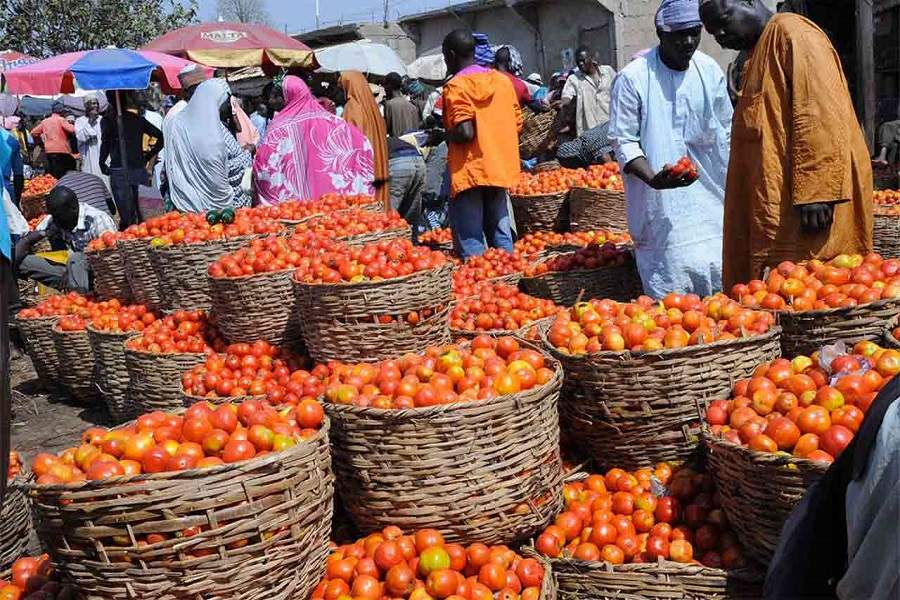For many years, agriculture has been the major economic driver in Kebbi State, employing the majority of its workforce alongside commerce, and leveraging its riverine floodplains. The state governor, Abubakar Atiku Bagudu, won re-election largely on the strength of his achievements in the agricultural sector. Under his administration, Kebbi became the largest rice-producing state in Nigeria, earning him an appointment as the chairman of the Presidential Task Force Committee on rice and wheat production.
In 2019, Kebbi State had an Internally Generated Revenue (IGR) of N7.3 billion, a 50.9 per cent increase from the previous year. This N7.3 billion formed 12.2 per cent of the state’s total revenue, with the remaining 87.8 per cent coming from the Federation Account Allocation Committee.
In a deliberate effort to grow the economy, the governor has focused on diversification, especially through agriculture through a partnership with the Bank of Agriculture, Federal Ministry of Agriculture and the Central Bank of Nigeria (CBN), Governor Bagudu’s administration launched an agricultural revitalisation, transformation and diversification drive.
This initiative is underpinned by the importance of agriculture to food production, job creation, economic diversification, and income generation for the citizens of Kebbi State. This partnership culminated in the recent completion of GBfoods’ N20 billion tomato factory in the Ngaski Local Government Area of Kebbi State.
As with most perishable vegetables, tomato production faces consistent market instability. This has led to an average annual post-harvest loss of up to 45 percent. It is well known among stakeholders in the value chain that tomato is a commodity that historically could either drive a farmer into poverty or provide a path out of it depending on market dynamics, weather, or pests and diseases.
The factory is the first fully backward integrated tomato factory in West Africa.
This allows Kebbi State, through GBfoods, to be both a supplier and producer of tomatoes and tomato products, minimises post-harvest loss, and gives the state and Nigeria the chance to become major players in the $190 billion global tomato market.
The completion of the tomato factory in Ngaski local government, Kebbi State, has already impacted the livelihood of over 5,000 smallholder farmers.
Where before they would simply harvest crops for consumption or small-scale distribution, they now have a direct line to a processing plant which would increase their production capacity and potentially more income for them and their families. The tomatoes they harvest during the dry season will be converted into tomato concentrate and used in the production of Gino Tomatoes Mix and Gino Tomato Pepper Onion. During the rainy season, they will harvest soybeans which will be used in the production of Bama and Jago mayonnaise.
Dr Teddy Ngu, Director of Corporate Affairs, GBfoods Africa, says the company deployed agronomists, extension workers and consultants who took, and are continuing to take, steps to ensure that the farmers benefit from the knowledge and technology that GBfoods is transferring to Nigeria – knowledge that the company gathered from over four decades of successful tomato operations in Italy and Spain.
Also in the spirit of agricultural investment as a channel for diversifying the economy, the Kebbi State government formed a partnership with the Lagos State government to produce the Lagos-Kebbi Rice (LAKE Rice). This partnership creates a readily available and sustainable market for the rice produced by farmers in Kebbi.
According to the state government, some of the major problems farmers face in the state include a low level of technology, a lack of access to credit, increasing low level and duration of rainfall, fragmentation of farmland resulting from inheritance and population growth, inability to secure farm inputs at the right time, among others. In addition to this, while the production of staple foods such as rice, millet, and sorghum has increased over time, the production of cash crops has fallen.
Most farmers still produce just enough for consumption, in the process, limiting their own sources of income. Therefore, this makes the investment in industrialising agriculture and creating more channels of processing and distribution all the more vital to the future of the state.
There are many ways in which increased investment in agricultural industrialisation benefit Kebbi State. First, it increases the provision of food and raw materials to other, non-agricultural sectors of the economy.
Next, it increases the demand for goods in those other sectors, propelled by the increased production capacity and level of supply. It also opens up more avenues for export, allowing the state to increase its IGR and boost foreign exchange value.
Tax analyst Tony Onunkwo writes that “Kebbi could emulate countries like Russia, United States and India in focusing and empowering their agriculture to the extent that it becomes one of the foremost in the country and continent.” With the level of investments the state government is making in agriculture and the presence of GBfoods’s tomato factory, Kebbi State is on its way to making this a possibility.

